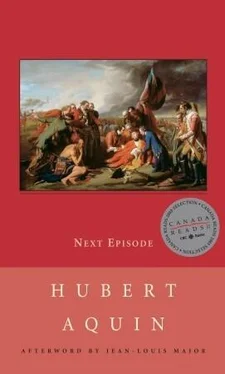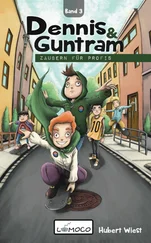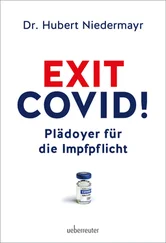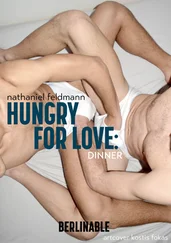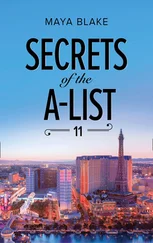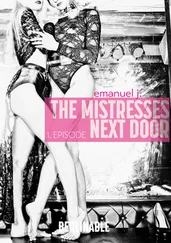Hubert Aquin - Next Episode
Здесь есть возможность читать онлайн «Hubert Aquin - Next Episode» весь текст электронной книги совершенно бесплатно (целиком полную версию без сокращений). В некоторых случаях можно слушать аудио, скачать через торрент в формате fb2 и присутствует краткое содержание. Год выпуска: 2001, ISBN: 2001, Издательство: McClelland & Stewart, Жанр: Современная проза, на английском языке. Описание произведения, (предисловие) а так же отзывы посетителей доступны на портале библиотеки ЛибКат.
- Название:Next Episode
- Автор:
- Издательство:McClelland & Stewart
- Жанр:
- Год:2001
- ISBN:9781551996240
- Рейтинг книги:3 / 5. Голосов: 1
-
Избранное:Добавить в избранное
- Отзывы:
-
Ваша оценка:
- 60
- 1
- 2
- 3
- 4
- 5
Next Episode: краткое содержание, описание и аннотация
Предлагаем к чтению аннотацию, описание, краткое содержание или предисловие (зависит от того, что написал сам автор книги «Next Episode»). Если вы не нашли необходимую информацию о книге — напишите в комментариях, мы постараемся отыскать её.
is a disturbing and yet deeply moving novel of dissent and distress. As he awaits trial, a young separatist writes an espionage story in the psychiatric ward of the Montreal prison where he has been detained. Sheila Fischman’s bold new translation captures the pulsating life of Aquin’s complex exploration of the political realities of contemporary Quebec.
Next Episode — читать онлайн бесплатно полную книгу (весь текст) целиком
Ниже представлен текст книги, разбитый по страницам. Система сохранения места последней прочитанной страницы, позволяет с удобством читать онлайн бесплатно книгу «Next Episode», без необходимости каждый раз заново искать на чём Вы остановились. Поставьте закладку, и сможете в любой момент перейти на страницу, на которой закончили чтение.
Интервал:
Закладка:
Everything slows down. My very heartbeats seem more widely spaced. The supersonic agility of my mind collapses suddenly under the malevolent charm of H. de Heutz. I stand motionless, transformed into a pillar of salt, and I can’t help seeing myself as thunderstruck. A sovereign event is occurring right now as I occupy a tiny space in a charming woods that looks down on Coppet, while the time that separates me from my appointment with K on the terrace of the Hôtel d’Angleterre keeps shrinking. In the presence of this man who’s impossible to identify, I seem to be still seeking the pure reason that’s made me pursue him so desperately, that should incline me to pull the trigger of the Mauser and fire at him to break the troubling relationship that has sprung up between us. I keep looking at him, I hear his sobs, and a kind of mystery fills me with sacred indecision. An event I’ve stopped controlling is unfurling solemnly within me, sending me into a deep trance.
10
LESS VERBAL now, my sorrow is running secretly in my veins. The haunting music of “Desafinado” drives away the sun. I watch it go down, flaming, in the middle of Lac Léman, its posthumous light setting fire to the clay strata of the Pre-Alps. A city seven times buried, its written memory is no longer touched by the generative flame of revolution. Delinquent inspiration is drowned in the cuttlefish ink that causes the lake to shudder in front of Coppet.
Nothing is free here: neither my compulsion, nor the greasy traction of ink on the realm of fancy, nor the movements sensed by H. de Heutz, nor the freedom that has devolved upon me to kill him when the time is right. Nothing is free here, nothing: not even this impetuous escape that I’m manipulating with my fingertips and think I’m controlling, when in fact it is obliterating me. Nothing! Not even the plot, nor the order in which my memories light up, nor the entombment of my nights of love, nor the Galilean swaying of my women. Something tells me that an earlier model is transforming my improvisation into some atavistic form, that an ancient alluvium is embracing the instant river that escapes me. I’m not writing, I am written. The future act has long since known me. The uncreated novel is dictated to me word by word and I appropriate it as I go, following the Geneva convention on literary copyright. I am creating something that outdistances me, that sets down before me the mark of my unpredictable footprints. The imagination is a scar. I live my own invention and what I kill is already dead. The images I imprint on my retina were already there. I do not invent. What awaits H. de Heutz in the romantic woods surrounding the Château de Coppet will be communicated to me soon, when my hand, busy speeding up history, is launched into action by some words that will come before me. Everything is waiting for me. Everything precedes me with a precision that I unveil even as I move to get closer to it. Though I’m running now, it’s as if my anterior past has laid down my approach and uttered the words I think I’m imagining.
For a long time I dreamed of devising my own movement and rhythm, of laying down with my own fervent strides the road to follow. Yes, during all those years I dreamed of a triumphant rush I would produce second by second. But I can lay down nothing but words, struck in advance in the image of the absolute woman I encountered somewhere between Acton Vale and Tingwick, which is now called Chénier, between a certain June 24 and my eternal motile night. Every fragment of this unfinished novel reminds me of that fragment of road in the Eastern Townships, of a fragment of night torn from a fête nationale . This hybrid novel is merely a disorderly variation on other books by unknown writers. Mired in a bed of clay, I follow the course, I never invent. That holds true for everything I write: here I am, deep in an impasse where I no longer want to move forward. That depressing observation ought to let me break free of it and find a counter-truth to make up for it. But I can find nothing beyond my evidence, especially because I resist transposing it into a rigid system. I reject any systematization that would plunge me deeper still into the agony of something not yet created. The pseudo-creative novelist merely draws his characters’ gestures and relationships directly from an old repertoire. If I denounce as futile any attempt at originality, perhaps I must continue within that pitiful darkness and burrow within this darkened labyrinth. No negotiable depravity can shield me from the sharp despair I experience at the thought of all the variables that can enter into the composition of an original work. But why am I so concerned about this question of absolute originality? I don’t know. But ever since my mind has stopped trying to solve this riddle, I’ve been afflicted with a progressive slowdown, struck by a growing paralysis. My hand no longer moves forward. I’m reluctant to do anything more; suddenly I don’t even know how to behave. I have a powerful sense that the next turn will be dangerous and that I risk everything when I admit why I’m hesitating. It’s no longer the operative originality of literature I render harmless, it’s the individual’s existence that suddenly bursts and disenchants me! But if this shock that’s annihilating my ambition to write something in an original way is so devastating, if I’m suddenly deprived of my reason for writing because I perceive my forthcoming book as predicted and marked in advance, according to the Dewey system, with an infinitesimal coefficient of individuation, and because at the same time I still want to write, it means that writing doesn’t become pointless simply because I am stripping it of its need to be original, or because this genetic function doesn’t define it. At least an urge to be original isn’t the only thing that improves the image of the literary endeavour. One can undertake to write a spy novel that’s set anomalously on the shores of Lac Léman with some other motive than creating a unique work! Originality at all costs is a chivalrous ideal, an aesthetic Holy Grail that falsifies any expedition. Jerusalem the second, that overdone singularity, is nothing but a crusader’s obsession, a mythical retransposition of a stroke of fortune that is the basis on which powerful capitalism has been erected.
I see in this novel I’m writing, in this daily book that’s beginning to give me more pleasure, a meaning different from the powerful novelty of its final format. I follow this book from hour to hour and from day to day, and I’m no more likely to give up on it than I am to commit suicide. This broken book resembles me. This mass of paper is a product of history, an unfinished fragment of my own essence and thus an impure testimony to the faltering revolution I continue to express in my own way through my institutionalized delirium. This book is cursory and uncertain, as I am, and its true meaning cannot be dissociated from the date of its composition or from events that have happened within a given period of time between my native country and my exile, between a certain July 26 and a June 24. Written by a prisoner held ransom at ten thousand guineas for a detox cure, this book is the bitter fruit of an anecdotal incident that sent me from a prison to a clinic, that obliges me to be methodically busy for days and days so I won’t grow discouraged. This book is the tirelessly repeated act of a patriot who’s waiting in the timeless void for the chance to take up arms again. Moreover, it embraces the very shape of the time to come: in it and through it I am exploring my indecision and my unlikely future. Overall, it points to a conclusion that it won’t contain because it will follow the full stop that I’ll set at the bottom of my last page. I no longer insist on pursuing the spectre of originality, something that would actually keep me inside the nitrogenous sphere of inflationary art. The anticipated masterpiece isn’t my business. My dream is of a totalitarian art in constant genesis. The one form I’ve been pursuing, confusedly, since I began this work is the formless one assumed by my imprisoned existence: an impulse constantly broken by the fragmented timetable of seclusion, a binary oscillation between hypostasis and aggression. Here my every move is an attempt to deny my isolation; I seek untidily any earlier existences where I was not a prisoner, but was flung in every direction like a corrupted missile. From that contradiction no doubt come the wild fluctuations in what I write, a frenzied alternation of drownings and resurfacings. Whenever I come back to this paper a new episode is born. Every writing session creates a pure event, attached to a novel only to the degree, unreadable but terrifying, to which I myself am connected to my broken-down existence. A naked event, my book is writing me, it is open to understanding only on condition that it’s not removed from its historical context. And here I am, suddenly dreaming that my epic, which is losing its sense of reality, is inscribed on the national calendar of a people without history! How ridiculous, how pitiful! It’s true that we have no history. And we’ll start having one only at that uncertain moment when the revolutionary war begins. Our history will be launched in the blood of a revolution that is breaking me, that I’ve served poorly: on that day, with slashed veins, we’ll make our debut in the world. On that day, a bloody intrigue will build on our quicksand an eternal pyramid that will let us measure the size of our dead trees. History will begin to write itself when we give to our pain the rhythm and the blinding power of war. Everything will take on the flamboyant colours of history when we march into battle, machine-guns at the ready. When our brothers die in ambushes, leaving the women alone to celebrate June 24, our writing will no longer be an event, it will become a document. The act alone will prevail. Only the guerrilla’s elusive and deadly action will be seen as historical; only despair that has led to action will be recognized as revolutionary. Any other writing, any other song, will be assigned to the pre-revolutionary period.
Читать дальшеИнтервал:
Закладка:
Похожие книги на «Next Episode»
Представляем Вашему вниманию похожие книги на «Next Episode» списком для выбора. Мы отобрали схожую по названию и смыслу литературу в надежде предоставить читателям больше вариантов отыскать новые, интересные, ещё непрочитанные произведения.
Обсуждение, отзывы о книге «Next Episode» и просто собственные мнения читателей. Оставьте ваши комментарии, напишите, что Вы думаете о произведении, его смысле или главных героях. Укажите что конкретно понравилось, а что нет, и почему Вы так считаете.
